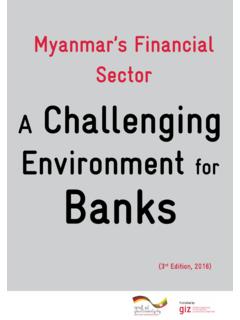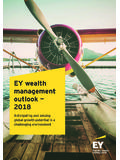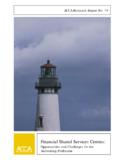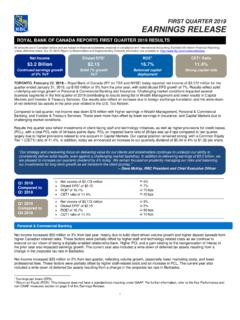Transcription of Cambodian Government – Private Sector Forum (G-PSF)
1 Paris, 1-2 February 2006 WORKING GROUP 9 CASE STUDY CAMBODIA. Cambodian Government Private Sector Forum (G-PSF). James Phillip Brew, Project Manager, IFC. Structure of the G-PSF biannual meetings, and seven Working Groups Cambodia's Government - Private Sector Forum (G-PSF) is a public Private consultation mechanism. The G-PSF is held bi-annually under the chairmanship of the Prime Minister of Cambodia. The G- PSF is a full cabinet meeting and the decisions made in the Forum are binding as such. The G-PSF is an opportunity for the Private Sector and the governments to report on the progress of the seven Working Groups (WGs) and to consider the outstanding issues that remain unresolved from the WG meetings. The seven Working Groups are the engine of the G-PSF. They are organised by Sector : 1) Law, Tax and Governance 2) Export Processing and Trade Facilitation 3) Services, including Banking and Finance 4) Tourism 5) Manufacturing and SMEs 6) Agriculture and Agro-Industry 7) Energy and Infrastructure Each WG is co-chaired by a Minister of the Royal Government of Cambodia (RGC) and a representative from the Private Sector .
2 The WG meetings discuss an agreed agenda of issues and recommendations that relate to either policy ( laws, sub-decrees, prakas, decisions) or direct operational impediments confronted by the Private Sector (such as road conditions, unofficial fees, damaged infrastructure). Outstanding issues that are not resolved within the Working Group dialogue are referred to the G-PSF for Cabinet review. As the WG meetings are attended by representatives of the line ministries, one of the important functions of the G-PSF is that it provides an opportunity for intra- Government exchanges of information relating to Private Sector development. Private Sector Working Groups (PSWGs) an important preparatory tool In preparation for each Forum WG meeting, the Private Sector conduct a Private Sector Working Group (PSWG) meeting. The agendas are prepared following a broad consultation process and consist of prioritized issues and recommendations.
3 In a country lacking a strong network of formal institutions such as business associations and independent Chambers of Commerce, the PSWG provides a platform for individuals and, as the work progresses, associations to actively be engaged in the development of the Private Sector environment. To facilitate the involvement of representative associations, Chambers of Commerce and other interested parties, secretariats have been established for the PSWGs. The secretariats are being effectively utilized by the Working Groups on Tourism, Energy and Infrastructure, and Manufacturing and SME. Other Working Groups such as Law, Tax and Good Governance; Services, including Banking and Finance; and Export Processing and Trade Facilitation are supported by associations that provide a leading role in those sectors. Because the Forum is perceived as independent and is viewed as an effective mechanism for lobbying Government for reform, the attendance of representative associations has increased.
4 The secretariats encourage associations to be responsive to their membership by providing feedback to and from the Forum process and providing the Working Group with an agenda that is representative of the issues confronting each Sector . There is also an Executive Co-Chairs Working Group, which consists of the seven Private Sector co- chairs from each WG. It meets to discuss issues that are of significance to each group and to decide on an agenda for the G-PSF. An indication of the effectiveness of this group is that the prime minister has offered to meet the group on short notice on matters that are considered to be of national importance to the Private Sector . Donor involvement logistical support The International Finance Corporation's (IFC's) formal involvement in the G-PSF started in February 2002 with the appointment of the AusAid funded Coordinating Bureau, which the IFC manages. James Brew, Project Manager, Elida Kimsrun, Team Assistant, and recently appointed national Project Analyst, Sovithea Khun, manage the Coordinating Bureau.
5 The IFC's direct logistical support to the bi-annual Forum expanded throughout 2005. This support includes the provision of interpretation during the Forum , translation of laws and regulations, printing costs for relevant documents to be distributed during the Forum , and refreshments. As a consequence of the coordinating and facilitation role, the IFC provides substantive support to the Government and Private Sector counterparts in preparing for the Forum . As the facilitator for the Forum process, the IFC has an important role in ensuring the impartiality of the dialogue and encouraging both sides to participate in a maturing process and to focus on content over form. The IFC is especially closely involved in the Private Sector Working Groups. It organizes and hosts many of the PSWG meetings, coordinates the nominations and elections of co-chairs and encourages broad input from the national and international Private Sector .
6 In addition to providing summaries for the G-PSF, WGs and PSWGs, the IFC constructs matrices of issues and recommendations, establishes meeting agendas and monitors progress. The reporting and subsequent analysis is widely distributed to the Government , Private Sector and donor community. This impartial reporting is important for providing a platform for all parties to monitor the progress of the Forum . Communication and participation Communicating the progress of the G-PSF and the various Working Groups is an important IFC role. Currently the IFC distributes information to an estimated 3,200 businesses via email. The G-PSF is communicated live on television and is reported in national and foreign language newspapers in Cambodia, who are also in attendance throughout the Forum . Increasing the exposure of the Forum and ensuring that the participants are reflective of the sectors has required phased progress in line with the maturity of the Forum and the political tolerance for broad dissemination.
7 Transparency for the G-PSF is currently at two extremes. Whereas the Forum itself is telecast live throughout the country, the Working Groups receive little direct news coverage. The need to encourage broader dissemination of the issues and results of the WGs, and building a model that encourages participation for businesses throughout Cambodia, is a challenge and an opportunity for the Coordinating Bureau. Importance of the IFC's role as an honest broker The G-PSF is an increasingly effective mechanism to address the Private Sector 's operational and policy issues directly to the Government . Amongst the IFC's support functions, a critical one remains that of the honest broker. The impartiality of the IFC is important for motivating and encouraging stakeholders to be fully engaged in a process that continues to put forward issues that had hitherto, before the IFC. involvement in the G-PSF, been considered too sensitive to discuss in an open dialogue between the Government and the Private Sector .
8 Cambodia is a post conflict country where peace was finally gained in 1998. In post conflict countries, the IFC has recognized the need to improve the investment climate that will ultimately lead to the conditions required to attract investors, including the IFC. Although moving off a low base, the Forum process has provided a platform for the Private Sector to lobby Government , build capacity and stimulate the development of associations that view the Forum as an effective platform to address Sector issues to the Government . Similar work is being undertaken in Vietnam, where a Forum has been in place for almost ten years, and in Laos where it is beginning. In focusing on PSD via such a Forum , the Private Sector are a recognized partner in reform. This process has emerged as a catalytic structure for an inclusive approach to PSD for example, the G-PSF played a valued role in the development of the Cambodian Value Chain and Trade Facilitation program as it evolved from the Investment Climate Assessment.
9 Results Some results from the Cambodian G-PSF are readily quantifiable, others less so. Each of the seven Working Groups has made progress in their Sector or cross- Sector work. The Law, Tax & Good Governance Working Group (LTGG WG) has had substantive involvement in the review of a number of laws and regulations. This includes the recently passed Sub-Decree on Special Economic Zones. When the LoI was recently published and distributed during the G-PSF, the LTGG WG's long term input was given recognition in the published edition of the work. A substantive issue for developing countries is the role of the Private Sector in the provision of infrastructure, and since 2002 main arterial road leading to Cambodia's sea port has been operated under a toll concession. The Energy & Infrastructure Working Group has provided the platform for a long-term dialogue on the cost and management of this concession.
10 This dialogue has led to negotiations on toll cost, maintenance, management and other related issues. As it is a Government policy to initiate other similar concessions, the WG has provided the Government with a lessons learnt' input for use in their ongoing deliberations on this challenging issue. Another issue for many developing countries is land management. During the G-PSF in October 2005, the Government agreed to establish a working committee with the Private Sector to identify and review economic land concession disputes. The Forum is a malleable institution whereby cross-cutting WG meetings can focus on an issue that impacts more than one Sector . For example, participants of the seven WGs were heavily involved in the building of the World Bank Group's Private Sector Development Program. In 2003 WG. participants actively contributed to the development of a value chain study. This work identified trade facilitation issues as a significant barrier to growth.










